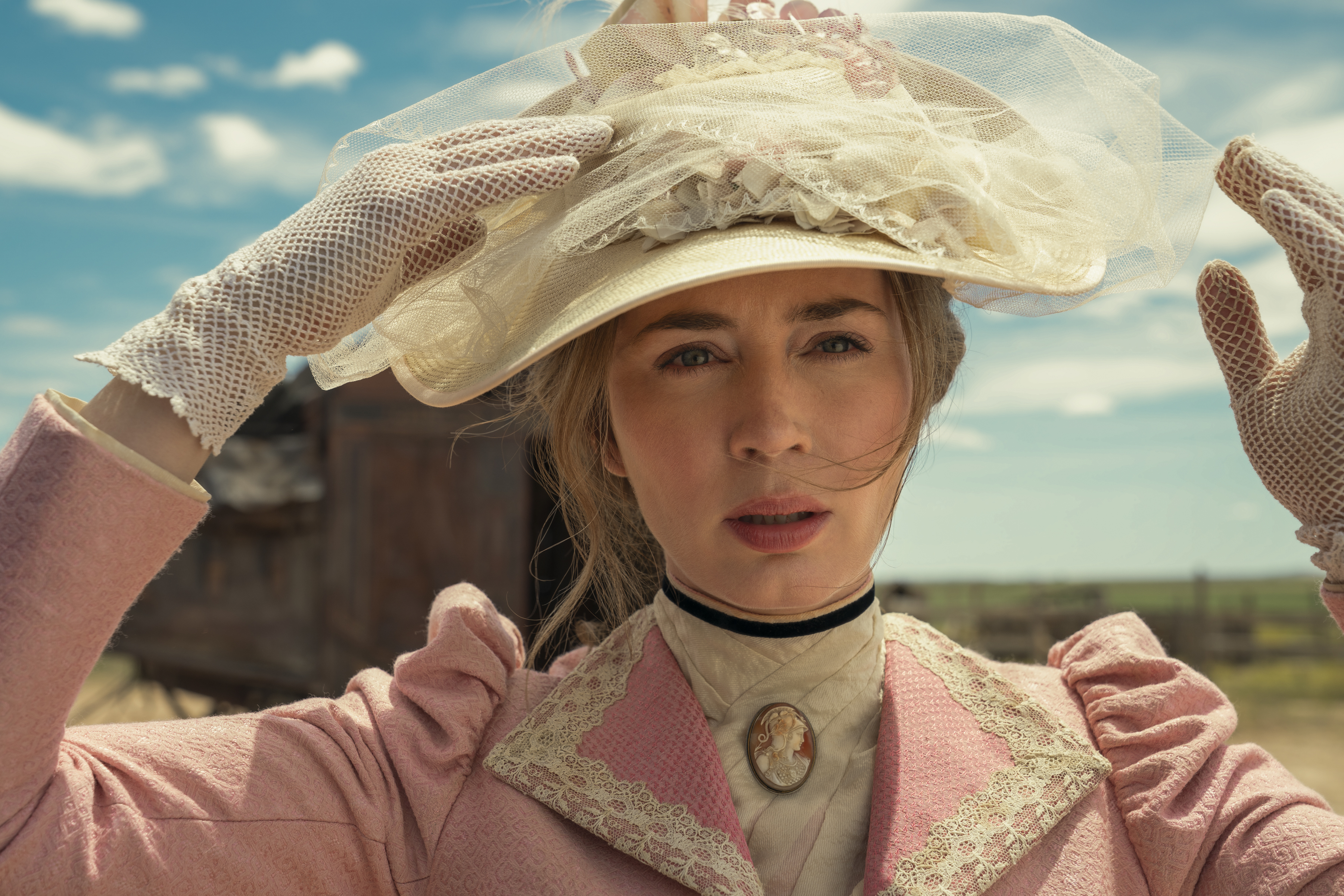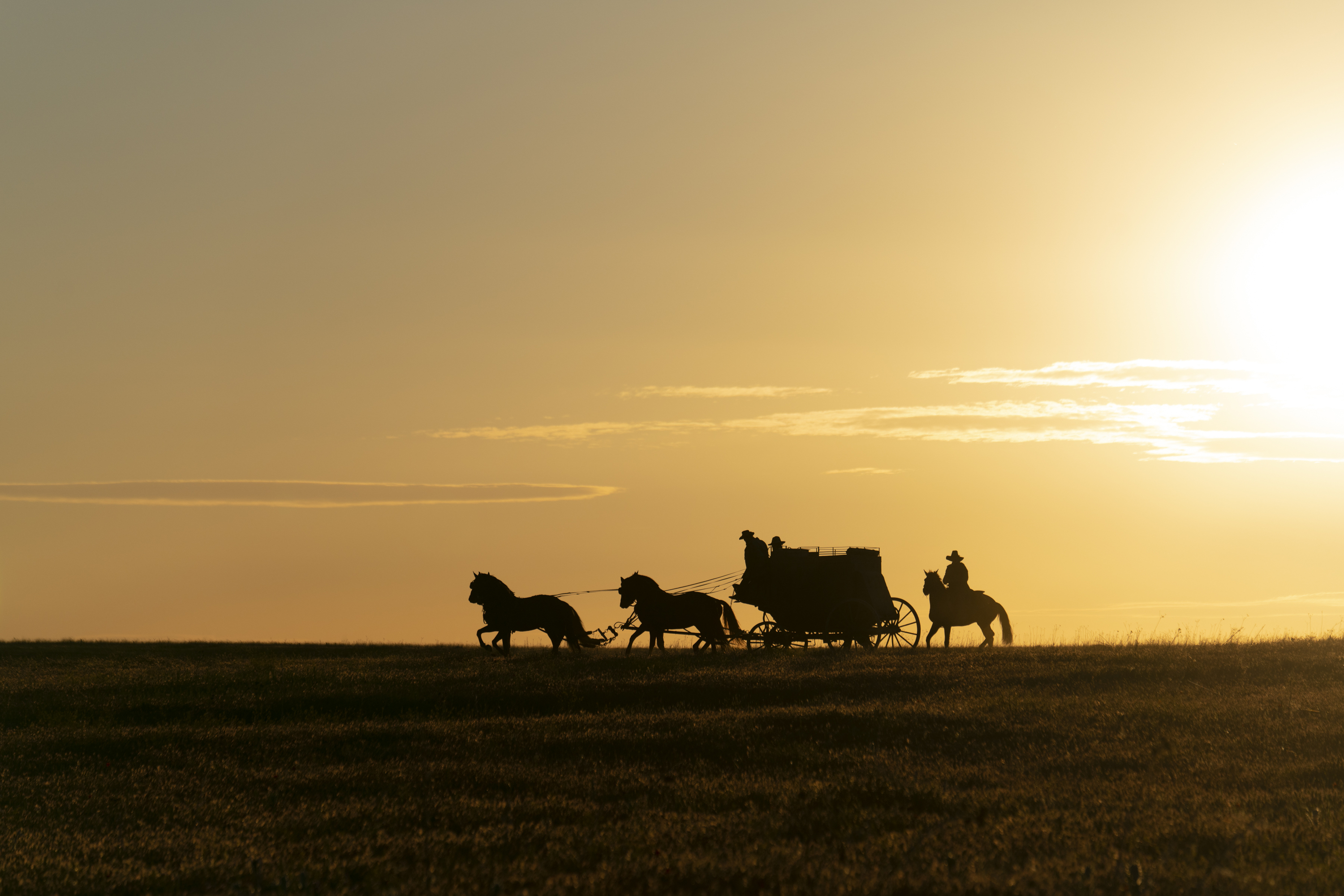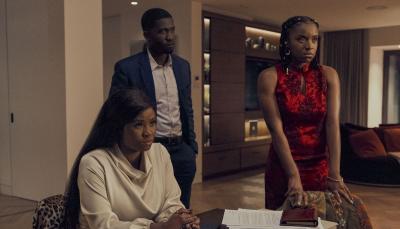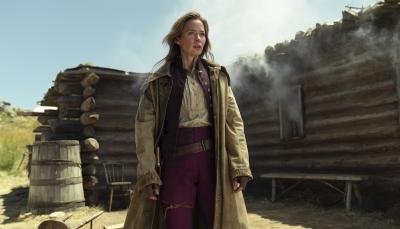'The English' Belongs With The Best Neo-Westerns
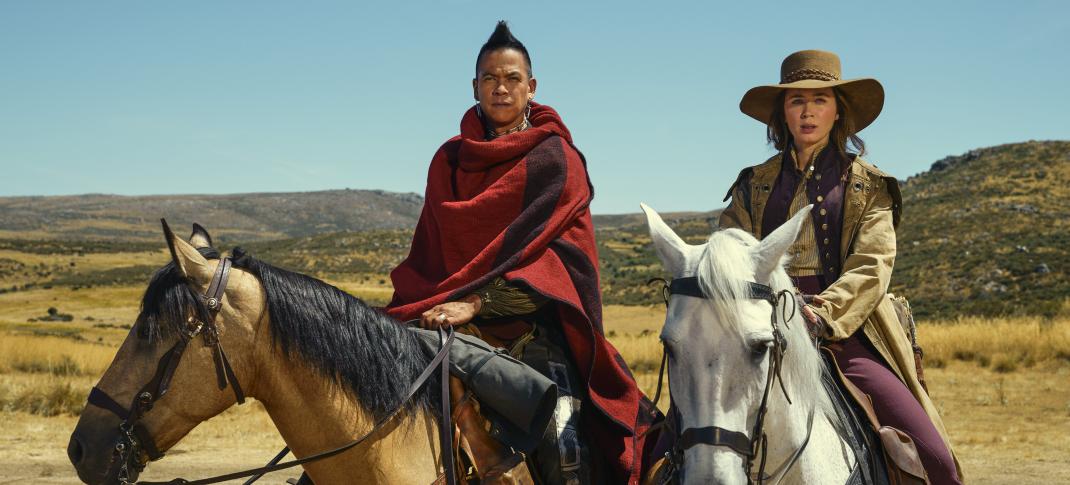
Chaske Spencer and Emily Blunt in 'The English'
Diego Lopez Calvin/Drama Republic/BBC/Amazon Studios
There’s a noticeable difference between a writer who can effortlessly pen pulp stories (or at least authentically recreate a pulpy voice and tone) and a writer who certainly enjoys a bit of pulp, but whose attempts to write in a rich, entrenched genre come across a little faux. This is forgivable – not everyone can be Sam Raimi or Tarantino – but usually, when you watch a neo-Western, there’s not enough time in a film to let the slowly germinating themes and reflections breathe, while also delivering stylistic bombasity with eye-popping action and over-stylized filmmaking. The balance is hard to find in a sub-2 hour runtime, something Netflix’s The Harder They Fall exemplified last year. So if you’re not clicking with someone knowingly writing pulp in the first 10 minutes, it’s unlikely to get any better by the end.
This makes The English, a six-episode miniseries from Hugo Blick, a welcome exception. Blick had an especially difficult job of not just writing a pulpy throwback, but a quintessential American genre written by a Briton (although Blick did draw from his experience in the West as a child). Thankfully, after a rocky first episode of Deadwood-wannabe dialogue and clunky set-ups, the show gets into its stride to become as authentic as the best neo-Westerns, benefiting from its incisive and occasionally subtle modern stylings.
The series begins with an English lady, Cornelia (Emily Blunt), in mourning in a manor filled with Native American artifacts and photos of a Native man, who we’ll learn is Eli Whipp (Chaske Spencer), a former Union soldier. We join them in the past, as Cornelia and Eli set off across the frontier on separate missions of retribution: to reclaim the land he is owed and to kill the man responsible for her son’s death.
Blick, the writer of The Honourable Woman and Black Earth Rising, clearly loves narrative tricks too much to make The English a simple, linear story. After a few episodes, doubts about the information the series has insisted is paramount have started to creep in. You become increasingly aware of the cogs of the narrative machine turning to land a satisfying conclusion.
Some choices, like an entire flashback episode that ties up multiple backstories in unexpected ways, make the debatably choppy pacing and structure worth it. But in other instances, you realize The English is overcomplicating a simple story and halting the momentum of character arcs – most notably when the catharsis of a central romance has only had its characters grow close over one-and-a-bit episodes. But what elevates The English from a sea of faux-prestige miniseries is that Blick is a seasoned small-screen writer, and rather than making the dreaded “six-hour movie” in televisual form, each episode has clearly defined structures and units of drama that make you feel like you’re watching TV with the trappings of film, not the other way around.
The cinematic craft makes most of the structural issues forgivable. Bursting with vibrant technicolor, the skies and plains of the Western frontier brightly radiate, perfectly enhancing the grit and stains of our weary ensemble. Playing around with shutter speed on the action and opting for unconventional, tricksy angles has less impact, but cinematographer Arnau Valls Colomer captures a setting that feels teeming with danger and beauty. Combined with Frederico Jusid’s sweeping score, it feels like we’re being emotionally sold on the cinematic, awe-inspiring narratives of the old west that the story goes out of its way to deconstruct.
What does the West mean? Is it undefined, merely the projection of dreams and insecurities on a place that already had a people, an identity? Is it the blood spilled in constructing a new ideology? The English shows the truth in all of the above, with plenty of raging, carnal men to poison the earth with festering white cruelty. In Cornelia, we see someone who was robbed of all authority through grief, and only in the wild plains can she grasp onto power.
In Eli, there’s a man whose trauma has led him to a single-minded individualism that must soften as he witnesses how much the persecution of his people has gone unaccounted for. The thorny, agonized way The English extends itself through these themes feels resonant, even if its focus on disabled bodies and deformed faces (which, granted, has not been explored in Westerns to the extent it is here) feels more leering than contemplative.
Thanks to its six-episode runtime, The English strikes that balance between contemplative theming and brash, exciting storytelling. The characters are bold and easy to grasp, but all equally loaded with shadows that haunt them. What’s more, Neo-Westerns live or die on their reassessment of Native characters, and Blick’s unceasing interest in delving into the attempted genocides of the time makes The English a worthy exploit. Together with an impactful style and dynamic action, Blick has proven he can upgrade to flashy thrills without losing that piercing insight into the human condition.
All episodes of The English are streaming on Prime Video.

